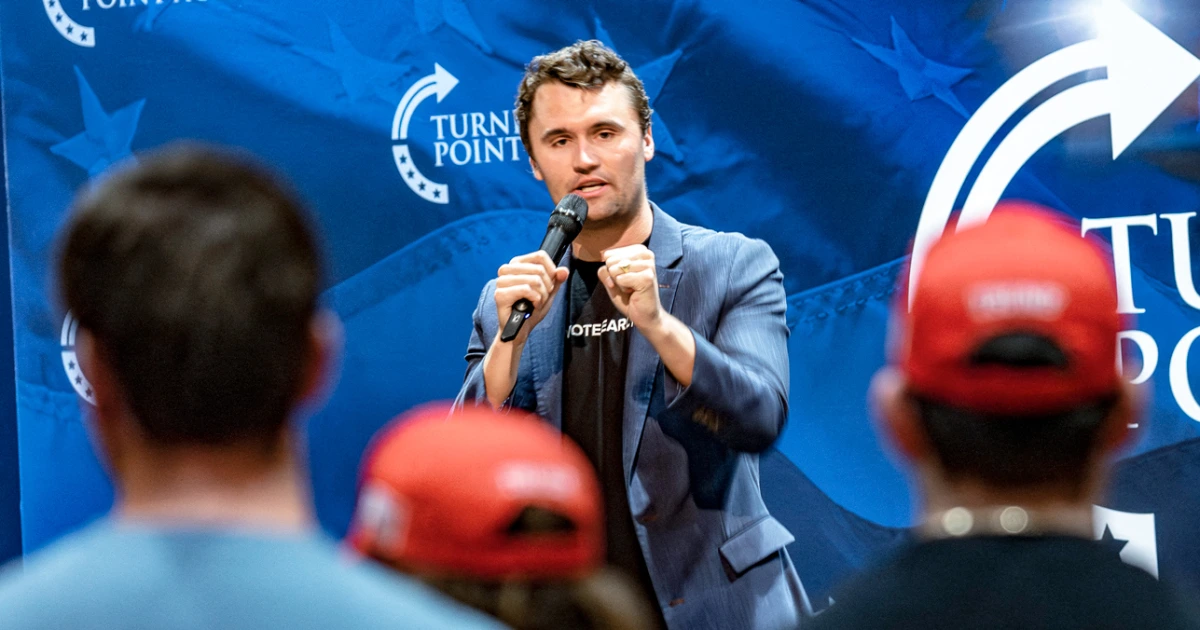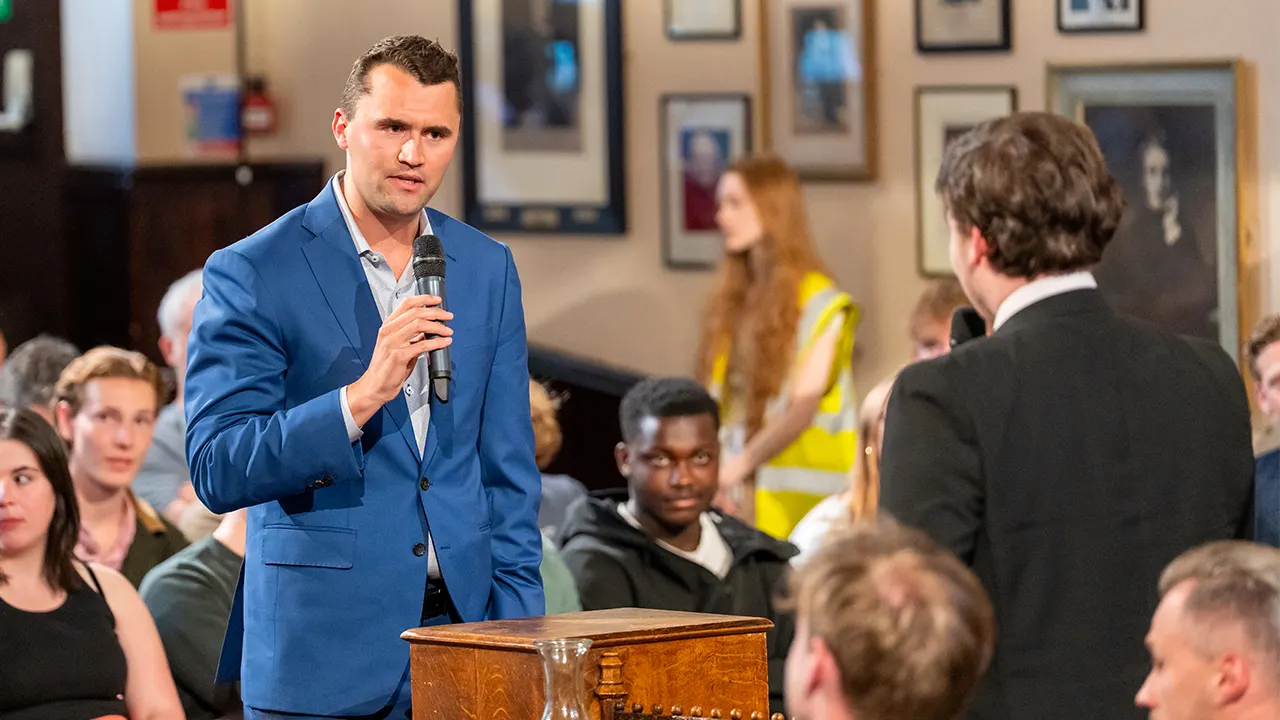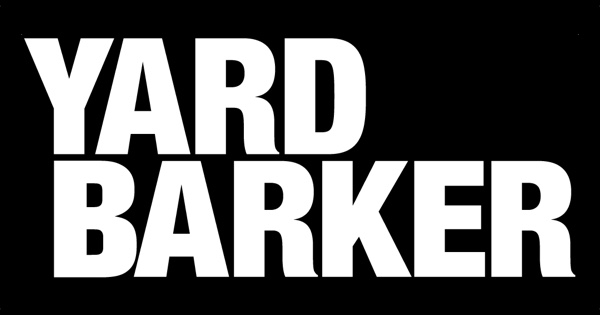
In the two weeks since Charlie Kirk’s death, most of the conversation has centered on his rhetoric: the viral debate clips, the combative persona and the soundbites that traveled far and wide online. But if we reduce his legacy to style and messaging alone, we miss the bigger picture. Kirk’s most enduring achievement wasn’t what he said — or even his massive digital footprint — it was what he built offline. Through Turning Point USA (TPUSA), Kirk created a lasting political infrastructure for young conservatives all across the country that Democrats have yet to match.
Kirk created a lasting political infrastructure for young conservatives that Democrats have yet to match.
As a former press secretary for Dream for America, an organization created to mobilize young people in direct opposition to TPUSA, I saw firsthand the scale of what Kirk was constructing. That’s why I spent so much time last year sounding the alarm that young American men — particularly high school seniors — were drifting to the right.
Kirk founded TPUSA in 2012 and grew it into a political powerhouse. By 2024, it reported $85 million in revenue, over 9,000 college chapters and 1,100 high school chapters. The organization employs field organizers, trains student activists and runs slick conferences that pipeline young conservatives into the broader Republican movement. This is not a loose collection of social media influencers, but a professionalized, well-funded network designed to last and grow. A current job posting for a TPUSA field representative is illuminating: “The College Field Representative is responsible for working specifically with Turning Point USA student groups to launch new chapters, maintain established chapters, organize daily campus initiatives, recruit new students, help students register to vote, and develop strong activist networks throughout their assigned territory.”
The contrast with Democrats could not be starker. The party doesn’t have anything similar to TPUSA in either function or scale.
Kirk understood what many on the left still ignore. Even in the digital-first landscape, infrastructure matters more than rhetoric. Though New York City mayoral candidate Zohran Mamdani is Kirk’s polar opposite ideologically, he has also figured that out and has paired viral content with robust real world, on the ground, organizing efforts.
But Democrats are still at risk of missing the lesson. Just a few years ago, the party realized that it had ignored local school board elections. By the time the party began paying more attention to contests that shape curriculum battles and local political culture, conservatives had already captured the field. Similarly, while there exists a patchwork of valiant, often issue-specific, efforts to organize young progressives, there is simply no top-down, mega-funded counter to TPUSA. Democrats seem to have taken young voters for granted since President Barack Obama’s 2008 victory. According to a Tufts University analysis published after last year’s election, “About 56% of young men, a demographic Trump’s campaign was vocal about trying to woo, said they voted for the former president [in 2024], a flip from the 56% who voted for Joe Biden four years ago. Young women, while overall favoring Harris, also took steps toward Trump, moving from 33% in 2020 to 40% in 2024.”
Trump, at TPUSA’s ‘AmericaFest’ in December, attributed his gains in youth support to Kirk.
While it is hard to isolate one single explanation for the shift, Trump, at TPUSA’s “AmericaFest” in December, attributed his gains in youth support to Kirk. “I want to express my tremendous gratitude to Charlie Kirk. He’s really an amazing guy, amazing guy and his whole staff for their relentless efforts to achieve this very historic victory … It’s not my victory, it’s your victory. It’s a great honor,” Trump said.
Following declining support among the younger demographic, Democrats’ solution seems to focus almost exclusively on messaging. Consultant after consultant blamed Harris’ loss on the “manosphere” and rehashed whether Harris should have done more podcasts. Presidential hopefuls for 2028 have responded by doing the rounds on shows like the “Flagrant” podcast and sitting down with MAGA-aligned influencers like Theo Von. Some outfits — like the “Unf*ck America Tour” and similar ventures — bundle progressive influencers to spar with conservatives in attempts to go viral. While these groups may generate moments, they do not create the deep, lasting, infrastructure that can actually compete with TPUSA for young voters’ attention.
More structured operations like Chorus, which offers a progressive influencer training program to expand the Democratic media ecosystem, focus on content creation and messaging amplification in the digital sphere. These are reactive efforts focused on winning followers and remuneration at an individual level, not national — community level — strategic organizing operations.
If Democrats are serious about winning back the next generation, then they need to change course urgently. That may mean less obsession over finding the left’s Joe Rogan, less boosting of dubiously effective influencers, and getting back to the unglamorous work of nationally driven hyper-local organizing. It means learning from Kirk’s model, not just countering his message.
Kirk’s legacy is that he left Republicans with a durable political machine that is already shaping the future and will continue to do so. Unless Democrats build something comparable, they will keep fighting only half the battle and risk losing the next generation of Americans for good.



